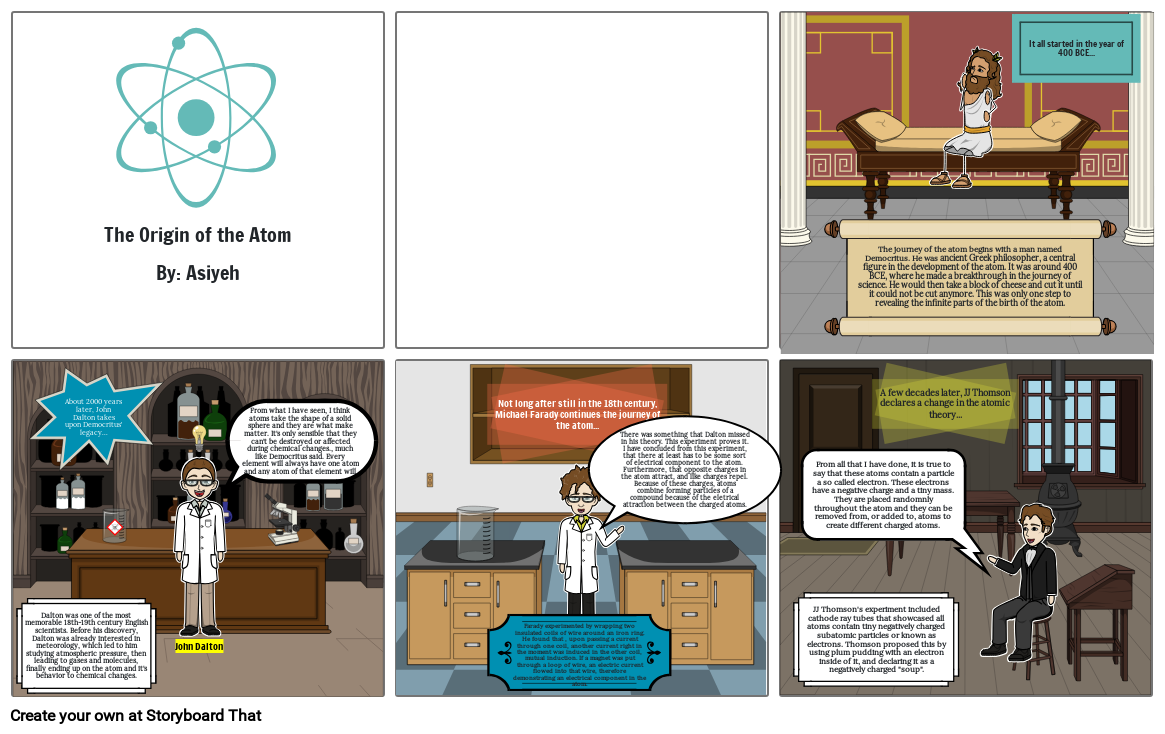Atoms

Storyboard Text
- Slide: 1
- The Origin of the AtomBy: Asiyeh
- Slide: 3
- It all started in the year of 400 BCE...
- The journey of the atom begins with a man named Democritus. He was ancient Greek philosopher, a central figure in the development of the atom. It was around 400 BCE, where he made a breakthrough in the journey of science. He would then take a block of cheese and cut it until it could not be cut anymore. This was only one step to revealing the infinite parts of the birth of the atom.
- Slide: 4
- About 2000 years later, John Dalton takes upon Democritus' legacy...
- From what I have seen, I think atoms take the shape of a solid sphere and they are what make matter. It's only sensible that they can't be destroyed or affected during chemical changes., much like Democritus said. Every element will always have one atom and any atom of that element will be identical.
- Dalton was one of the most memorable 18th-19th century English scientists. Before his discovery, Dalton was already interested in meteorology, which led to him studying atmospheric pressure, then leading to gases and molecules, finally ending up on the atom and it's behavior to chemical changes.
- John Dalton
- Slide: 5
- Not long after still in the 18th century, Michael Farady continues the journey of the atom...
- There was something that Dalton missed in his theory. This experiment proves it. I have concluded from this experiment, that there at least has to be some sort of electrical component to the atom. Furthermore, that opposite charges in the atom attract, and like charges repel. Because of these charges, atoms combine forming particles of a compound because of the eletrical attraction between the charged atoms.
- Farady experimented by wrapping two insulated coils of wire around an iron ring. He found that , upon passing a current through one coil, another current right in the moment was induced in the other coil, mutual induction. If a magnet was put through a loop of wire, an electric current flowed into that wire, therefore demonstrating an electrical component in the atom.
- Slide: 6
- A few decades later, JJ Thomson declares a change in the atomic theory...
- From all that I have done, it is true to say that these atoms contain a particle a so called electron. These electrons have a negative charge and a tiny mass. They are placed randomnly throughout the atom and they can be removed from, or added to, atoms to create different charged atoms.
- JJ Thomson's experiment included cathode ray tubes that showcased all atoms contain tiny negatively charged subatomic particles or known as electrons. Thomson proposed this by using plum pudding with an electron inside of it, and declaring it as a negatively charged "soup".
Over 30 Million Storyboards Created

